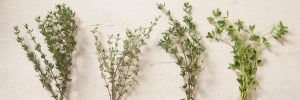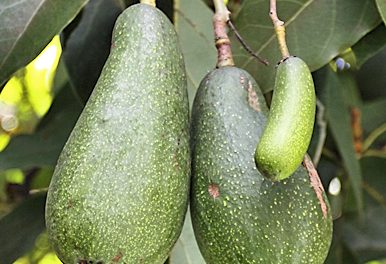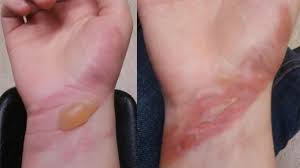Thyme (Thymus vulgaris) is an herb with a distinct smell. The flowers, leaves, and oil are commonly used to flavor foods and are also used as medicine.
Thyme contains chemicals that might help bacterial and fungal infections. It also might help relieve coughing and have antioxidant effects.
People commonly use thyme for cough, patchy hair loss (alopecia areata), dementia, and many other conditions, but there is no good scientific evidence to support these uses.
Don’t confuse thyme with wild thyme. These are two different plants.
Get full knowledge about Thymus vulgaris with the help of Pritish Kumar Halder’s article.

Side Effects
When taken by mouth: Thyme is commonly consumed in foods. Thyme is possibly safe when used as medicine, short-term. It might cause allergic reactions, dizziness, and stomach upset in some people. There isn’t enough reliable information to know if thyme oil is safe to use as medicine or what the side effects might be.
When applied to the skin: Thyme oil is possibly safe when used short-term. Some people might experience skin irritation.
When inhaled: There isn’t enough reliable information to know if thyme oil is safe or what the side effects might be.

Special Precautions and Warnings
- When taken by mouth: Thyme is commonly consumed in foods. Thyme is possibly safe when used as medicine, short-term. It might cause allergic reactions, dizziness, and stomach upset in some people. There isn’t enough reliable information to know if thyme oil is safe to use as medicine or what the side effects might be.
- When applied to the skin: Thyme oil is possibly safe when used short-term. Some people might experience skin irritation.
- When inhaled: There isn’t enough reliable information to know if thyme oil is safe or what the side effects might be. Pregnancy and breast-feeding: Thyme is commonly consumed in foods. There isn’t enough reliable information to know if thyme is safe to use in larger amounts while pregnant or breast-feeding. Stay on the safe side and stick to food amounts.
- Children: Thyme is commonly consumed in foods. Thyme is possibly safe when taken as medicine for short periods of time. There isn’t enough reliable information to know if thyme oil is safe to use as medicine or what the side effects might be.
- Allergy to oregano and similar plants: People who are allergic to oregano or other Lamiaceae species might also be allergic to thyme.
- Hormone-sensitive conditions such as breast cancer, uterine cancer, ovarian cancer, endometriosis, or uterine fibroids: Thyme might act like estrogen in the body. If you have any condition that might be made worse by exposure to estrogen, don’t use thyme.
- Surgery: Thyme might slow blood clotting. This might increase the risk of extra bleeding during and after surgery. Stop using thyme at least 2 weeks before a scheduled surgery.
Cultivation and History

Cultivation of thyme
Thyme has been utilized by humans for over two millennia, and its existence as a species predates homo sapiens, with evidence discovered in fossil remains that are over five million years old.
One of the earliest known uses of this herb was in ancient Egypt, where it was used for embalming the dead and was thought to assist them on their way as they passed on to the next life.
Ancient Romans believed it to be a useful antidote to poison. Emperors would often include this herb in their meals and even scented their baths with it.
It was also during this era that it was established as a symbol of courage.
Later, in the Middle Ages, soldiers were often given bouquets that included thyme as they were sent into battle.
And prior to the advent of modern medicine, due to its natural antiseptic properties, thyme oil was used to medicate bandages.
What was little understood then can be confirmed by science today, with the active ingredient thymol showing distinct antibacterial activity in studies.
T. vulgaris has also been hybridized with other species in the genus to create new varieties including my own personal favorite, lemon thyme (T. citriodorus).
Interactions
Moderate Interaction
Be cautious with this combination
-
Medications that slow blood clotting (Anticoagulant / Antiplatelet drugs) interacts with THYME
Thyme might slow blood clotting. Taking thyme along with medications that also slow blood clotting might increase the risk of bruising and bleeding.

thyme-oil
-
Drying medications (Anticholinergic drugs) interacts with THYME
Thyme can increase a chemical in the body called acetylcholine. Acetylcholine plays a big part in many important body functions. Some medications, called anticholinergic drugs, block the effects of acetylcholine in the body. Taking thyme might decrease the effects of anticholinergic drugs.
-
Estrogens interacts with THYME
Thyme might act like estrogen in the body. Taking thyme along with estrogen might decrease the effects of estrogen.
-
Various medications used for glaucoma, Alzheimer disease, and other conditions (Cholinergic drugs) interacts with THYME
Thyme can increase a chemical in the body called acetylcholine. Some medications that are used for glaucoma, Alzheimer disease, and other conditions, also increase acetylcholine levels. Taking thyme with these medications might increase the chance of side effects.
Dosing
Thyme is commonly used to flavor foods. It is also used in soaps, cosmetics, and toothpastes.
In supplements, there isn’t enough reliable information to know what an appropriate dose of thyme might be. Keep in mind that natural products are not always necessarily safe and dosages can be important. Be sure to follow relevant directions on product labels and consult a healthcare professional before using.

Reference
https://www.webmd.com/vitamins/ai/ingredientmono-823/thyme
https://gardenerspath.com/plants/herbs/grow-thyme/










